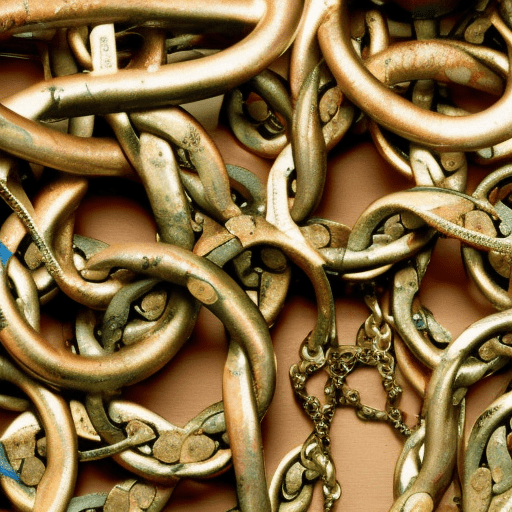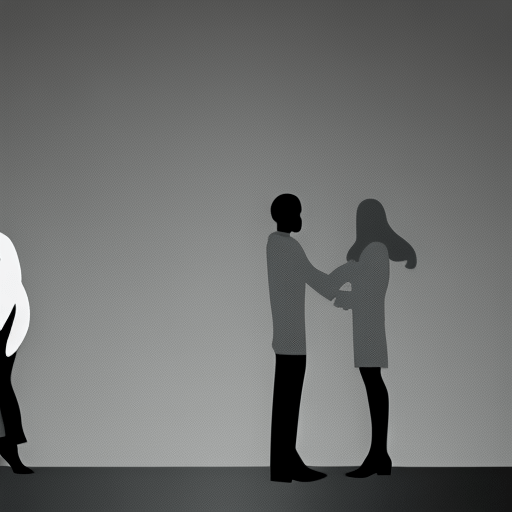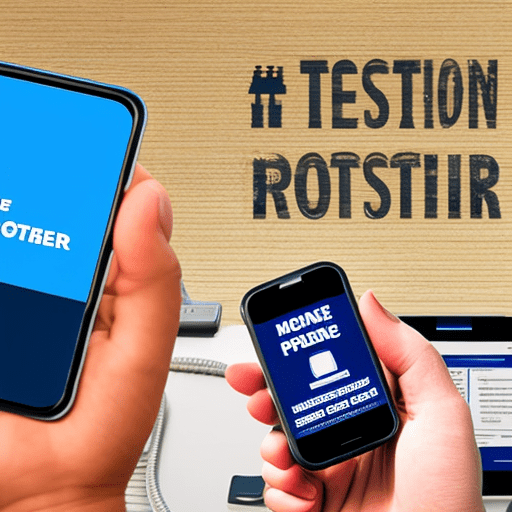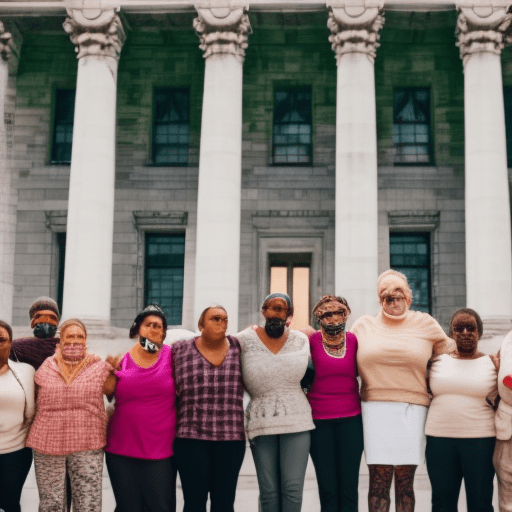Domestic violence is a pervasive issue affecting millions of individuals and families throughout America, leaving victims suffering physical, psychological and emotional. Effects of abuse that are devastating for both themselves and those they impact. As society attempts to find effective means of combatting domestic violence, one question often raised is if domestic abuse falls under criminal jurisdiction and constitutes a crime. This article explores the legalities surrounding domestic violence, exploring its classification as a crime. Domestic Violence will be defined and explored, along with its prevalence and legal framework. We’ll look at factors which determine if domestic violence constitutes a felony or misdemeanor crime. Also discussed will be the aftermath of domestic violence felony convictions, mandatory reporting obligations of healthcare providers and educators, state laws & variances related to gun ownership implications, legal protection for victims as well as support systems available for survivors.
By discussing these pertinent topics, our goal is to promote an in-depth knowledge of domestic violence and its legal ramifications, contributing to ongoing efforts against this violent crime. So is it considered a felony crime? Join us as we embark on our exploration journey together!
- 1. Understanding Domestic Violence: Definition and Prevalence
- 2. The Legal Framework: Is Domestic Violence a Felony?
- 3. Felony vs. Misdemeanor: Differentiating Domestic Violence Charges
- 4. Factors that Determine Felony Classification in Domestic Violence Cases
- 5. Consequences of Domestic Violence Felony Convictions
- 6. Mandatory Reporting: Obligations for Healthcare Providers and Educators
- 7. State Laws and Variances: How Domestic Violence is Treated Nationally
- 8. Domestic Violence and Gun Ownership: Implications for Felony Convictions
- 9. Legal Protections for Victims: Restraining Orders and Emergency Assistance
- 10. Seeking Justice: Resources and Support for Domestic Violence Survivors
- Conclusion
- FAQs
1. Understanding Domestic Violence: Definition and Prevalence

Understanding Domestic Violence: Definition and Prevalence
It is an all-too-common issue affecting numerous individuals and families globally. Domestic violence includes any form of abusive conduct in intimate relationships – marriages, dating relationships and cohabitation arrangements alike. Violence occurs through various physical, psychological or sexual assault tactics intended to establish power or dominance over its victim(s).
It has an alarming prevalence that spans all social-economic classes, ethnicities and genders. An estimated one out of every three women and four men will experience some form of physical assault from an intimate partner during their lifetime; yet these estimates likely underestimate its true scale as many cases go unreported due to fear, shame or lack of resources.
Recently, domestic violence awareness and efforts have increased dramatically. New laws were recently implemented to provide victims protection and hold perpetrators accountable; however, legal responses vary between jurisdictions regarding whether domestic violence constitutes a felony crime.
Is Domestic Violence a Felony?
Its charges vary based on its circumstances, severity, and local laws in each jurisdiction where it occurred. Often times the charges could even become felonies in some instances.
The incidents that involve severe physical harm, use of weapons or repeat offenses tend to be charged as felonies due to the potential threat posed by serious physical harm and loss of life. By charging domestic violence as a felony crime, we hope to deter this behavior, protect victims while simultaneously administering appropriate punishment for perpetrators.
However, it should be remembered that this may vary significantly depending on where an incident took place and may even vary based on local jurisdictional law and legal framework. Different areas have different defining statutes which treat this offense differently – this also holds true with domestic abuse allegations as they can differ based on who files them against whom.
2. The Legal Framework: Is Domestic Violence a Felony?

Domestic violence is an alarming global problem affecting millions of lives each year. Understanding its legal framework is vital in order to combat it effectively. This often includes asking whether it constitutes a felony offense.
Classifying it as either a misdemeanor or felony depends heavily on both jurisdiction and specific case circumstances. Its charges could potentially fall either under misdemeanor or felony jurisdiction depending on factors like severity of offenses committed against family or household members; presence of aggravating factors; criminal history records of defendant; etc.
Domestic violence allegations tend to be classified as felonies when there is serious physical harm, the use of deadly weapons, repeated instances of abuse or the victim is under 18, or there has been prior history with domestic abuse between parties involved. Additional aggravating circumstances might also elevate charges into felonies.
Penalty Comparison
Felonies carry more severe penalties than misdemeanors, with penalties including longer jail or prison terms, higher fines, mandatory counseling programs or rehabilitation, restraining orders to protect victims as well as loss of certain rights and difficulties finding work and housing options being possible consequences of being found guilty.
Noting the differences in laws and regulations around domestic violence varies by jurisdiction, for instance state laws within the US differing in their definition, penalties associated with offenses, protective order requirements and so forth. Therefore it is crucial that you seek advice from an attorney that specializes in domestic violence cases as to better understand your local nuances and legal framework.
Domestic violence may qualify as a felony offense under certain conditions. The determination of this distinction depends on several variables that include severity of offenses committed, presence of aggravating factors and criminal history of defendants as determining factors. It’s therefore imperative that we all gain an understanding of its legal framework so we may make informed decisions as individuals when facing situations involving domestic abuse or violence.
3. Felony vs. Misdemeanor: Differentiating Domestic Violence Charges

When facing domestic violence charges, it is vitally important to comprehend the distinctions between misdemeanors and felonies as it will impact legal proceedings as well as any possible penalties against an accused. The classification can have serious ramifications both legally as well as for their potential victims.
The offenses may either be charged as felonies or misdemeanors depending on their nature and state law, with such decisions usually determined by factors like assault type and intensity as well as prior criminal history of perpetrators.
Misdemeanor charges typically pertain to less serious instances in which harm caused is relatively minimal and are generally punishable with fines, probation, mandatory counseling sessions, community service requirements or short jail sentences; repeat offenders with history may face more stringent sanctions for even misdemeanor offenses.
Contrastingly, felony charges are reserved for more severe incidents involving serious physical harm, serious injury or the use of deadly weapons. A conviction on such charges could result in longer prison terms, substantial fines, mandatory counseling or anger management programs as well as losing certain civil rights such as being allowed to possess firearms.
Domestic violence charges vary significantly by jurisdiction. Each state law defines and penalises the offenses differently. Some have specific statutes classifying certain acts as felonies while other may leave this decision up to either the prosecutor or judge overseeing the case.
Additionally, domestic violence charges may have serious repercussions outside the criminal justice system. Such repercussions include restraining orders, loss of child custody or visitation rights, employment restrictions or damage to personal and professional relationships.
4. Factors that Determine Felony Classification in Domestic Violence Cases

It is an international crisis affecting individuals and families worldwide, yet in America its legal classification varies considerably across states – some classifying domestic violence as misdemeanor offenses while others consider it felonious acts. Understanding which factors determine which offense class applies is of great significance both to victims as well as perpetrators.
- Severity of Offenses: The severity of the incidents plays a pivotal role in whether they will be classified as felonies. Acts which cause serious physical harm, permanent disfigurement, or use deadly weapons more likely than not end up prosecuted as felonies.
- Previous Offenses: Repeat offenders can often face more stringent punishment, and could face criminal charges for their latest transgression. Having had previous convictions increases their chance of having their current offense be considered as felonious conduct.
- Relationship Between Parties: The relationship between perpetrator and victim plays a large part in how cases are classified, with violence against intimate partners more likely being considered felonious compared to violence committed against other family or household members.
- Violations of Protection Orders: Violating a protection order, commonly referred to as restraining or order of protection orders, is an extremely serious offense and could elevate into the classification of domestic homicide. These orders exist to help safeguard victims and stop further injury; any violations could bring more severe repercussions than intended.
Noting the laws and regulations related to domestic violence vary based on jurisdiction can help give an in-depth knowledge of applicable legalities in your particular state or country. To gain the full picture, it would be prudent to refer back to your local statutes for guidance on any specific situations arising within those laws or regulations that pertain specifically to you.
5. Consequences of Domestic Violence Felony Convictions

Legal consequences associated with it vary based on its severity and your local jurisdiction. While domestic violence could potentially constitute a felony offense, it’s crucial that all involved understand this area of law properly before acting accordingly.
- Lengthy Prison Sentences: Conviction for same offense frequently results in lengthy prison sentences that depend on individual circumstances; this timeframe often ranges between one year to several. Aggravating factors and prior criminal history play an influential role here as they all can have an effect on how long an offender spends behind bars.
- Restraining Orders: Felonies can also result in the imposition of restraining orders by the court, barring an individual who was found liable from contacting or approaching their victims within an allotted timeframe. Violating such an order can have further legal ramifications such as additional criminal charges and penalties being levied upon him/her.
- Loss of Firearm Rights: Under certain jurisdictions’ felony conviction laws, offenders may face permanent loss of firearm rights. Meaning they will no longer possess, own, or purchase firearms in order to reduce potential acts of violence while providing greater safety protections for both victims and members of society in general. This measure seeks to deter future incidents while protecting public safety as a whole.
- Mandatory Counseling or Treatment Programs: One of the penalties associated with its convictions can include mandatory counseling or treatment programs designed to identify and rehabilitate any issues contributing to violent behavior. Participation can even serve as a condition of probation or parole eligibility.
- Impact on Employment and Personal Life: Being charged with domestic violence can have serious repercussions both inside and outside the court system, including serious ramifications for employment prospects as many employers conduct background checks; relationships may become tenuous with family and friends as social stigma increases resulting from such convictions; job prospects could even decrease depending on employer restrictions based on background check results; they might limit job prospects altogether as employers often conduct thorough background checks before offering positions to applicants with violent criminal records, restrict job applications altogether etc.
6. Mandatory Reporting: Obligations for Healthcare Providers and Educators

Healthcare providers and educators play a critical role in fighting domestic violence by identifying and reporting suspected cases of abuse. Healthcare professionals and educators have an ethical obligation to report suspected domestic abuse incidents as it constitutes a serious criminal act with significant repercussions for victims involved. Although state laws differ regarding domestic abuse reporting requirements may vary.
Healthcare providers, including doctors, nurses, psychologists and social workers are frequently the go-to sources for victims seeking medical or psychological attention or counseling services. Furthermore, as mandated reporters they must report suspected cases of domestic violence to authorities – this obligation ensures victims get support and intervention to end cycles of abuse and break them.
Educational Institutes
Teachers, school counselors, and administrators all share in the responsibility to report suspected cases of domestic violence. Teachers often stand in an ideal position to observe signs of child or teenage abuse before it reaches critical mass; by reporting any suspicions related to violence in the home educators can assist vulnerable individuals by connecting them with available services and resources.
Reporting abuse typically includes notifying law enforcement or the appropriate child protective services agency depending on the nature and age of victim abuse. Both agencies specialize in domestic violence cases and will conduct an investigation to protect victims while holding perpetrators responsible.
Noting mandatory reporting obligations exist to protect victims’ wellbeing, with professionals who fail to fulfill these responsibilities facing legal ramifications themselves. Failing to report suspected domestic violence could have severe repercussions for all involved – perpetuating cycles of abuse while depriving victims access to vital assistance services they desperately require.
Overall, mandatory reporting is an integral component in combatting this offense. Healthcare providers and educators serve as essential advocates for victims by making sure their voices are heard and the necessary steps taken.
7. State Laws and Variances: How Domestic Violence is Treated Nationally

The laws vary across each of the 50 US states. Understanding their nuances is integral for understanding its severity and possible penalties associated with any offenses committed within each jurisdiction.
Domestic violence in many states is indeed considered a felony offense, meaning that criminal penalties typically carry more severe repercussions. A felony crime generally includes acts of physical harm against its target. Which unfortunately parallels domestic violence cases.
Note, however, that not all states classify domestic violence offenses as felonies; rather some have different classifications, including misdemeanors or “domestic assault.” This legal classification variation has implications on penalties imposed against offenders as well as resources available to victims.
State laws typically classify this as a felony offense and the severity of charges depends on a variety of circumstances surrounding each case, such as physical injuries caused, use of weapons and past convictions as well as any aggravating factors that exist in each particular instance.
States where this is classified as misdemeanor may impose less stringent punishment for offenders; misdemeanor offenses generally carry shorter jail terms, probation periods and/or fines as well as mandatory counseling or intervention programs designed to address its root causes while offering support both to offenders and victims alike.
Notably, all states have laws in place that provide resources and assistance for victims of domestic violence in terms of restraining orders, mandatory arrest policies and accessing shelters or counseling services.
Recent years have witnessed an upward trend toward acknowledging and intensifying these offenses by tightening laws surrounding them. Many states have instituted harsher punishments and increased victim support services as ways of taking this issue more seriously.
8. Domestic Violence and Gun Ownership: Implications for Felony Convictions

It is an insidious problem affecting millions of individuals and families worldwide. While each jurisdiction determines if domestic violence constitutes a criminal act or not, oftentimes its laws and regulations dictate whether domestic abuse constitutes an offense in some capacity. The answers depend on local conditions.
These offenses typically fall under either misdemeanor or felony categories depending on its nature and extent, including whether physical assault was involved and any subsequent harm done to its target victim. Misdemeanor charges typically pertain to less severe incidents like physical altercations and verbal harassment which typically end in probation fines and short term imprisonment for violators.
However, more serious domestic violence crimes such as those where significant physical injury was sustained by either party or where there is evidence of prior convictions are subject to felony charges and conviction. Such convictions could carry lengthy prison terms with substantial fines attached and can create permanent criminal records for perpetrators.
Gun Ownership
An essential factor when discussing felony convictions is gun ownership. In certain jurisdictions, individuals convicted of these offenses – particularly felonious ones – may be barred from owning or possessing firearms to safeguard potential victims and limit further violence. This policy exists as an effort to keep society safer.
Domestic violence and gun ownership restrictions have numerous effects. On one hand, they help safeguard victims of violent individuals who seek access to firearms by restricting their purchase – with statistics showing an increased risk of homicide associated with firearms present during instances of domestic abuse.
Restricting an individual’s right to bear arms under the Second Amendment has long been seen as an infringement on personal liberties, with critics noting they do nothing to address root causes of domestic violence or promote prevention efforts. Furthermore, enforcement can be difficult; effective monitoring and enforcement mechanisms need to be put in place in order for such restrictions to take full effect.
Noting the laws related to domestic violence and gun ownership restrictions varies significantly by jurisdiction. For instance, certain locales place lifetime gun bans for individuals charged with domestic violence felonies.
9. Legal Protections for Victims: Restraining Orders and Emergency Assistance

Domestic violence victims’ safety should always come first; to offer legal protections to these vulnerable people there are measures in place such as restraining orders and emergency assistance programs that have been put in place.
Restraining orders (also referred to as protective orders or orders of protection) are legal documents issued by courts that aim to shield victims of domestic violence from further injury. Such orders typically prohibit their abuser from any direct or indirect contact with them directly or indirectly and often contain provisions regarding child custody, visitation rights and financial support as well.
Restraining order
Attaining a restraining order usually entails filing a petition with the court detailing incidents of abuse and need for protection, along with any evidence presented at trial. After reviewing, they may issue temporary protection until an official hearing takes place to decide on permanent orders; depending on jurisdiction and process this can differ; but usually works to offer immediate protection to victims of domestic abuse.
Victims who experience domestic violence frequently may need immediate assistance to ensure their safety and navigate legal processes more easily, which could include accessing local law enforcement, hotlines or shelters for survivors. Such resources play a pivotal role in supporting survivors.
Emergency assistance typically includes providing temporary shelter to victims and their children, connecting them to support services, and assuring immediate safety. Shelters offer survivors of domestic abuse as a safe haven that provides counseling, legal advocacy and other essential services to ensure immediate protection and immediate wellbeing for everyone living within.
Noting the availability and effectiveness of legal protections depends heavily on where one lives; laws regarding restraining orders and emergency assistance vary significantly across nations – even between states within a single nation! Therefore it’s advisable for victims to seek legal advice specific to their location in order to gain an in-depth knowledge of all available protections.
10. Seeking Justice: Resources and Support for Domestic Violence Survivors

After experiencing domestic violence, understanding one’s rights and seeking justice are critical components to survival. While certain acts could technically constitute criminal violations, exact details regarding its legalities will depend on your location.
If someone you love is experiencing domestic abuse, it is imperative that they reach out for assistance by seeking legal support services or essential supports services – below are just a few that could assist them with finding justice:
- Domestic Violence Hotlines: Most countries provide hotlines dedicated to domestic violence survivors that provide immediate support, from safety planning assistance and advice through to referrals of local resources.
- Shelters and Safe Houses: Domestic violence shelters and safe houses offer temporary accommodation to survivors as well as their children, providing a supportive, secure, and protective environment as well as access to vital services like counseling, legal help and other essential programs.
- Legal Aid Organizations: Legal aid organizations specialize in offering low or no cost legal representation to those unable to afford legal representation themselves – this may include domestic violence survivors who need help understanding their rights, obtaining restraining orders against abusers as needed and pressing criminal charges against perpetrators of domestic abuse. They offer this invaluable support by explaining your options effectively while helping file protective orders when needed and filing criminal complaints – legal aid is always there when help is required!
- Support Groups: Support groups provide survivors immense relief, offering a safe space in which to share experiences, get emotional support from other survivors who share similar situations and find wisdom from them all. Typically facilitated by trained professionals or volunteers and located nearby community centers or online platforms.
- Counseling and Therapy: Domestic violence survivors can face lasting psychological ramifications following exposure to violence; seeking professional guidance through counseling or therapy can offer healing from abuse as well as rebuild self-confidence and restore emotional well-being.
- Victim Advocacy Programs: Victim advocacy programs offer domestic violence survivors comprehensive support services from safety planning to legal aid assistance, accessing housing or financial resources and emotional help; all provided through trained advocates working directly with survivors to make sure all their needs and voices are heard while seeking justice and healing for all those involved.
- Education and Awareness Campaigns: Raising public awareness about domestic violence is vital in breaking its cycle of abuse, so awareness campaigns focus on raising public consciousness of its signs, encouraging healthier relationships and inspiring individuals to speak out against it. Schools, workplaces and community centers play a pivotal role in combatting domestic abuse by teaching healthy communication techniques along with consent and respectful relationships that promote personal wellness while breaking its cycle of abuse.
- Economic Empowerment Programs: Economic dependency can prevent survivors from leaving an abusive relationship, so economic empowerment programs provide financial assistance, job training opportunities and employment to enable survivors to break free and rebuild their lives. Furthermore, such programs may assist survivors with housing assistance, transportation needs and childcare – furthering their journey toward independence.
- Child and Family Services: Domestic violence has far-reaching ramifications on society as a whole, including children and families. Child and family services provide essential assistance and resources that allow victims of domestic abuse to heal after witnessing it first-hand – these resources include counseling services, child advocacy programs, parenting classes as well as educational or recreational programs that encourage healthy development among victims of violence.
- Prevention Programs: Domestic violence prevention programs play a critical role in creating a safer society, so these initiatives strive to address its causes while encouraging healthier relationships and challenging harmful gender norms through community workshops, school initiatives and public awareness campaigns that focus on challenging harmful gender norms while teaching respectful communication practices and conflict management techniques.
11. Conclusion
Legal implications associated with domestic violence vary considerably by state. Domestic violence is generally treated as a serious offense. Whether or not an incident falls into either category depends upon numerous factors including severity and prior criminal history of defendant. Acknowledging the differences between felony and misdemeanor charges is vitally important. Both to those charged and to their victims, since their outcome could depend on them.
Domestic violence convictions often lead to severe penalties, including imprisonment and fines. Potentially including loss of gun ownership rights along with possible jail time and removal from gun registry lists.
Healthcare providers, educators and other professionals must become educated about mandatory reporting obligations so they can protect victims by reporting any instances they suspect warrant mandatory reporting. This way ensuring help reaches victims when needed.
This increase awareness can ensure victims get help when required. Domestic violence victims also have legal protections available to them such as restraining orders and emergency assistance services that they can utilize if domestic abuse happens against them.
As survivors of domestic abuse become aware of available resources to them in order to seek justice and freedom. By eliminating legalities related to domestic abuse we can work toward building an equitable society where individuals live free from fear and violence within their homes.
12. FAQs
What is domestic violence?
Domestic violence refers to any act of physical, sexual, emotional or financial violence committed within domestic settings by someone living together in intimate relationships or past intimate partnerships. Abuse may manifest physically, emotionally, sexually or financially and it takes many forms. Abusers typically target intimate partners.
How is domestic violence classified as a felony?
Domestic violence may vary across nations and jurisdictions; in the U.S. it generally falls within this classification when severe physical harm or repeated offenses have taken place. While exact laws regarding this criminal behavior vary state by state, their purpose remains the same – to hold perpetrators responsible.
What are the consequences of domestic violence being classified as a felony?
Legal systems strive to punish domestic violence perpetrators more severely; felony charges often carry more severe punishments such as longer jail terms and higher fines; they may even lead to mandatory counseling programs and rehabilitation plans being mandatory requirements. By categorizing domestic violence as a felony charge, domestic violence perpetrators face harsher sentences. It also prioritizes victims and provides them with legal protections.
Are there any exceptions to domestic violence being classified as a felony?
Domestic violence offenses may sometimes be charged as misdemeanors instead of felonies; this usually applies in instances that involve less serious offenses or occur for the first time; repeated offenses with more severe injuries tend to warrant felonious charges instead.
What are the long-term consequences of a domestic violence felony conviction?
An offense for domestic violence may result in long-lasting repercussions for its perpetrator. Such effects include permanent criminal records, limited employment options and potential loss of visitation rights; difficulty with housing or financial aid applications and social stigmatization as a result of conviction; as well as strain to existing personal relationships.
What resources are available for victims of domestic violence?
Victims of domestic violence can turn to many resources for assistance and support, including:
Crisis hotlines: Crisis hotlines offer trained advocates to listen, offer information, and assist you in planning the next steps of escaping abuse or domestic violence. For example, The National Domestic Violence Hotline at 1-800-799-7233 (SAFE) or their website at www.ndvh.org are 24/7 hotlines with available translators that offer 24/7 services in multiple languages.
Shelters: Shelters provide safe haven if domestic violence threatens your life and home, offering other services like counseling, legal representation and referrals for relief. Visit DomesticShelters.org to locate shelters near you.
Counseling services: If the effects of domestic violence have left you experiencing trauma, depression, anxiety and low self-esteem it may help to reach out for professional counseling help to alleviate symptoms like traumatization. Counseling sessions may also assist in healing your life after domestic abuse has taken place.
Legal Aid Organizations: When facing difficult matters like divorce, custody battles, restraining orders, immigration or criminal charges a legal aid organization can offer invaluable help and representation. Helping you understand your options while protecting you against further abuse of any sort. You can locate one in your area at www.womenslaw.org.
Support groups: If you have experienced domestic violence, support groups offer a great way to connect and share feelings and strategies with those going through similar experiences. They’re great way to feel less alone and gain strength. Look into finding them through local domestic violence programs, shelters or counseling services in your area.

Meet ‘Lazy Koala’
Hey there! I’m the ‘Lazy Koala’, but don’t let the name fool you. I’m super passionate about writing and art. Here’s a bit about me:
What I Do:
Writing: I love telling stories and sharing cool stuff about life, love, and everything in between. If you’ve ever felt a certain way or had a crazy thought, chances are I’ve written about it!
Art: When I’m not writing, I’m drawing. Each piece of art I create is like a piece of my heart on paper.
Cool Stuff About Me:
I started “Koala Tea Writes” to share my thoughts, stories, and art with awesome people like you.
Ever wondered why I call myself ‘Lazy Koala’? It’s because I believe in taking breaks and finding inspiration in the quiet moments.
Expertise:
Information Buff: Ever wondered about the stars, ancient civilizations, or the latest tech trends? I delve into informational writings of all kinds, breaking down complex topics into fun and easy-to-understand pieces.
Voice for Change: I’m not just about facts; I’m about feelings too. I pen motivational writings on a range of social issues, aiming to inspire change, spread awareness, and ignite passion.
Product Guru: Whether it’s the latest sports gear, must-have beauty products, or the coolest tech gadgets, I’ve got you covered. I review all kinds of products, giving you the lowdown on what’s worth your time and money.
Chef-at-Heart: My kitchen is my playground! Discover food recipes of all kinds with me – from quick breakfasts to lavish dinners, from traditional dishes to modern twists, and from appetizing starters to delectable main courses.
Let’s Chat: I’m all over social media! You can find me on Facebook, Instagram, Twitter, YouTube and Pinterest. I love hearing from readers, so don’t be shy!
My Belief: I think everyone has a story to tell and a dream to chase. So, always spread love, find your happy moments, and go after what you love with all your heart.
Wanna Talk?: Got questions or just want to share something cool? Hit me up through the contact page on “Koala Tea Writes.”

